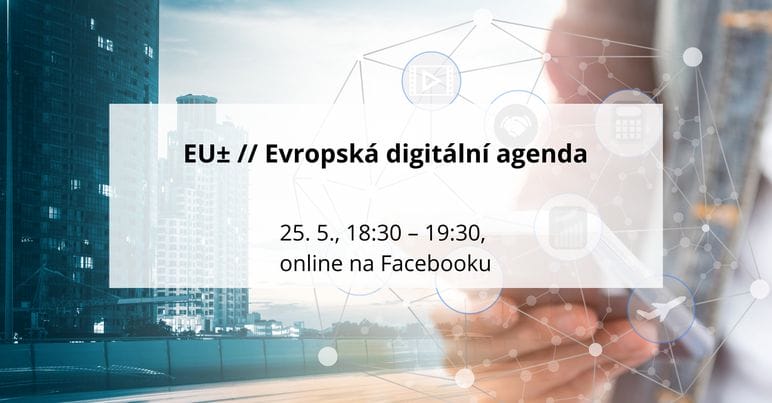
INVITATION: EU± // Digital Agenda for Europe
More info 25. 5. 2022
25. 5. 2022
We would like to invite you to the next debate in the EU± series, this time on the topic of "The European Digital Agenda". How to reconcile consumer protection and support for the development of the digital economy? Is the European Union ready for the digital age? And what impact will the newly adopted Digital Services and Markets Acts have on our digital future? To what extent will the digital economy be part of the Czech EU Presidency? Which specific legislative proposals will the Czech Republic be responsible for and what effect should these proposals have in the future?

Café Evropa in the regions: the future of forests in Vysočina - have we learned from the bark beetle calamity?
More info 6. 5. 2022
6. 5. 2022
We would like to invite you to a debate within the Café Evropa series, this time on the topic "The future of forests in Vysočina - have we learned from the bark beetle calamity?".
The debate will take place in person, in the Painted Hall, Museum of Vysočina Jihlava and will also be available to watch online on Facebook.
Is the situation really so scary and what does the future hold for the forests of the Vysočina region? What is the current state of forest cover in different parts of the Vysočina region? What circumstances and causes have led to the current state - and which ones are man's fault? What are the consequences of the disaster for nature, wildlife and humans? Can any positives be found in the whole situation? Will our relationship with forests and landscapes change in the future?

INVITATION: EU± // Germany's position on the Russian war in Ukraine
More info 4. 5. 2022
4. 5. 2022
We would like to invite you to the next debate in the EU± series, this time on the topic "Germany's position on the Russian war in Ukraine". How does German aid to Ukraine compare to other allies? What is the content of the German Zeitenwende? How will the change in Germany's approach to foreign policy translate into European foreign and security policy? Can Germany be expected to lead on security issues as it does in economy?
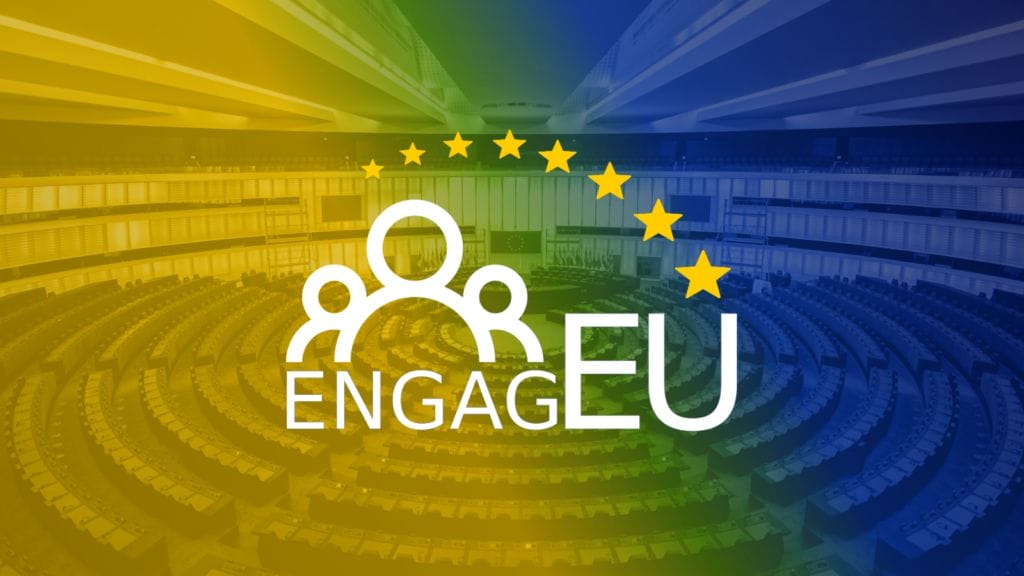
EngagEU - Zapojse.eu
More info 3. 5. 2022
3. 5. 2022
The EngagEU (Zapojse.eu) project aims to promote citizens' involvement in the issues of green transformation and post-pandemic recovery of Europe by creating a space for their active participation in an open discussion on key issues for the European Union and the Czech Republic. Through an interactive web-based environment, it offers the general public the opportunity to gain an understanding of the European Parliament, its work and current activities that have an impact on the daily lives of citizens.
The project is implemented by EUROPEUM Institute for European Policy and with the support of the European Parliament.
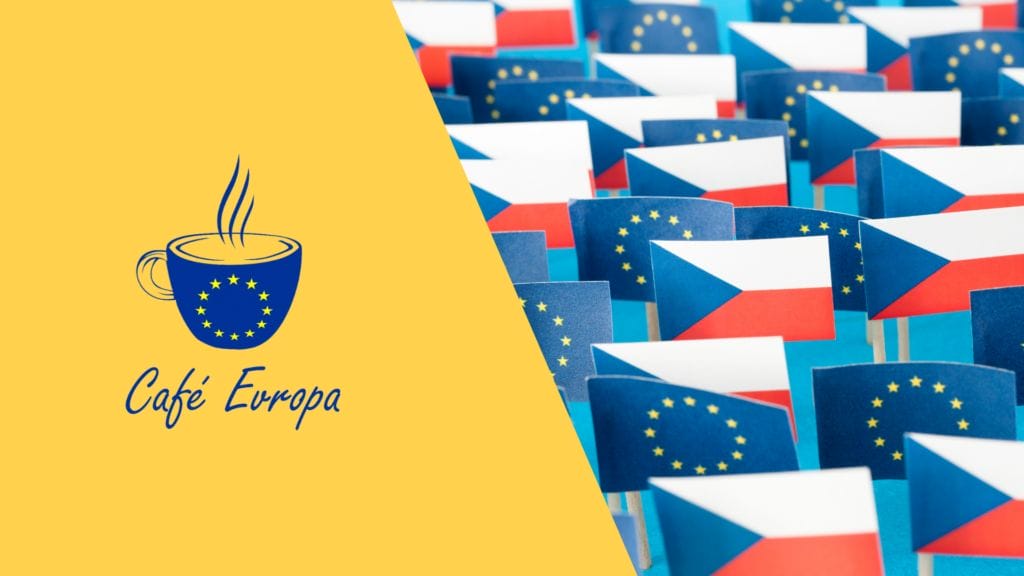
INVITATION: Café Evropa: 18 years of the Czech Republic in the EU - how has our EU membership matured?
More info 29. 4. 2022
29. 4. 2022
We would like to invite you to another debate within the Café Evropa series, this time on the topic "18 years of the Czech Republic in the EU - how has our membership in the European Union grown?".
This time the debate will take place in person during Europe Day on Střelecký ostrov in Prague, and will also be streamed on our Facebook page.
What are the biggest benefits of the Czech Republic's EU membership? How has the Czech Republic changed since joining the EU and how do you assess its performance in the EU so far? And can the Czech presidency make a major contribution to improving the Czechs' understanding of how the EU works?
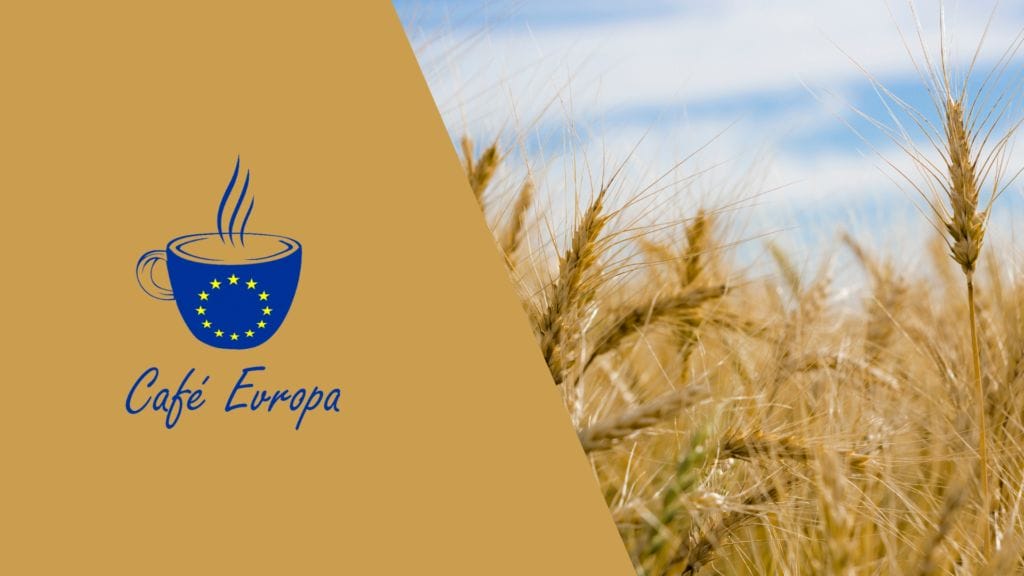
INVITATION: Café Evropa online: The future of the Common Agricultural Policy - who will benefit from it?
More info 25. 4. 2022
25. 4. 2022
We invite you to a debate as part of the Café Evropa series, this time on the topic "Café Evropa online: The future of the Common Agricultural Policy - who will benefit from it?". The debate will take place on 25 April at 17:30. Is the increasing support for organic farming a step in the right direction? How to set up eco-schemes for the period 2023-2027 to motivate farmers to farm sustainably?
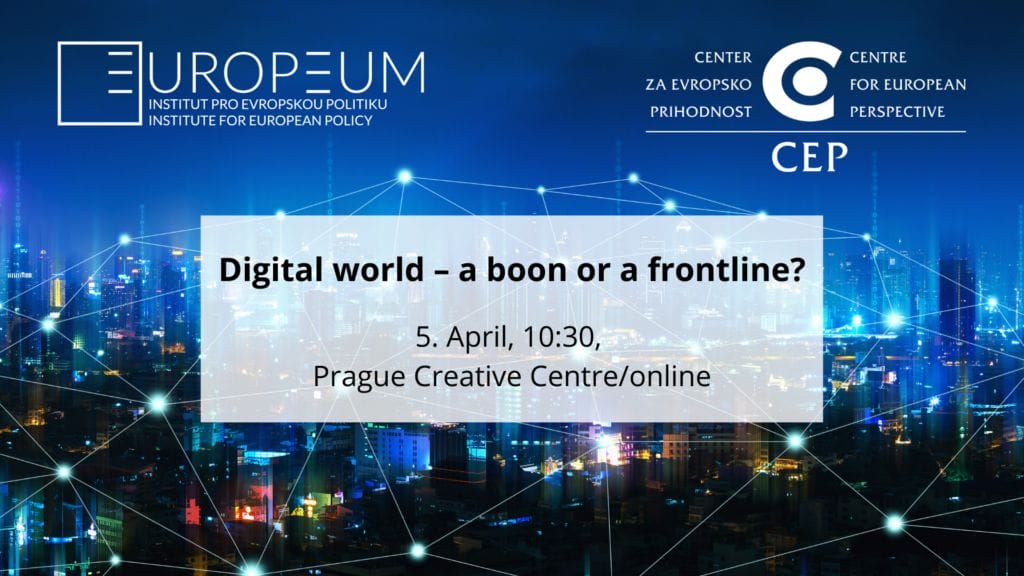
INVITATION: DIGITAL WORLD – A BOON OR A FRONTLINE?
More info 5. 4. 2022
5. 4. 2022
EUROPEUM Institute for European Policy and The Centre for European Perspective – CEP invite you to a hybrid event: DIGITAL WORLD – A BOON OR A FRONTLINE? The event will take place on Tuesday, 5 April at 10:30 in Prague Creative Centre, room 219, or online on our Facebook page.
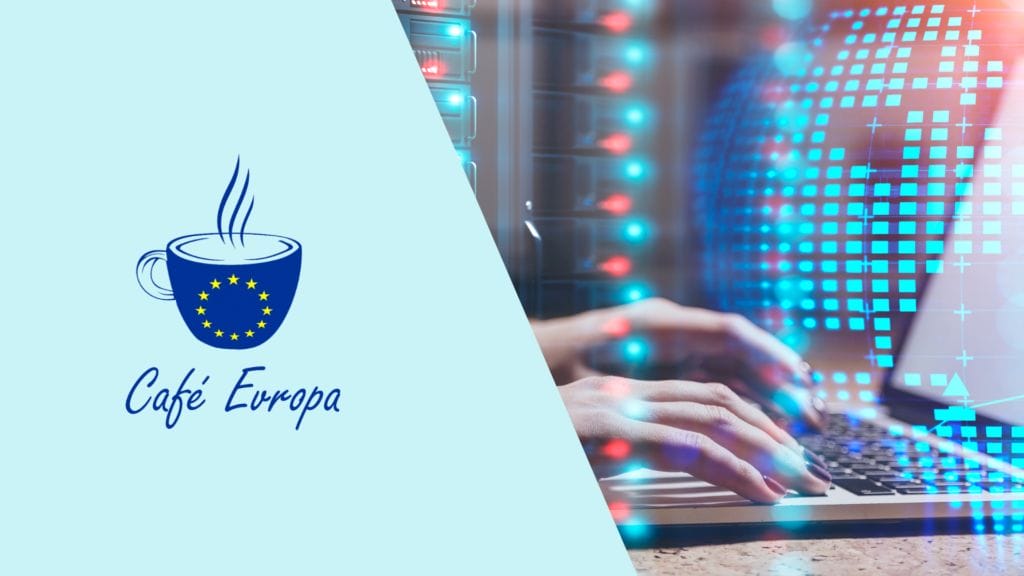
INVITATION: Café Evropa online: EU Digital Package - how will it affect online services in Europe?
More info 31. 3. 2022
31. 3. 2022
We would like to invite you to a debate "Café Evropa online: The EU Digital Package - How will it affect online services in Europe?". The debate will take place online on 31 March at 17:30. The debate will be in Czech and you can watch it on our Facebook page.
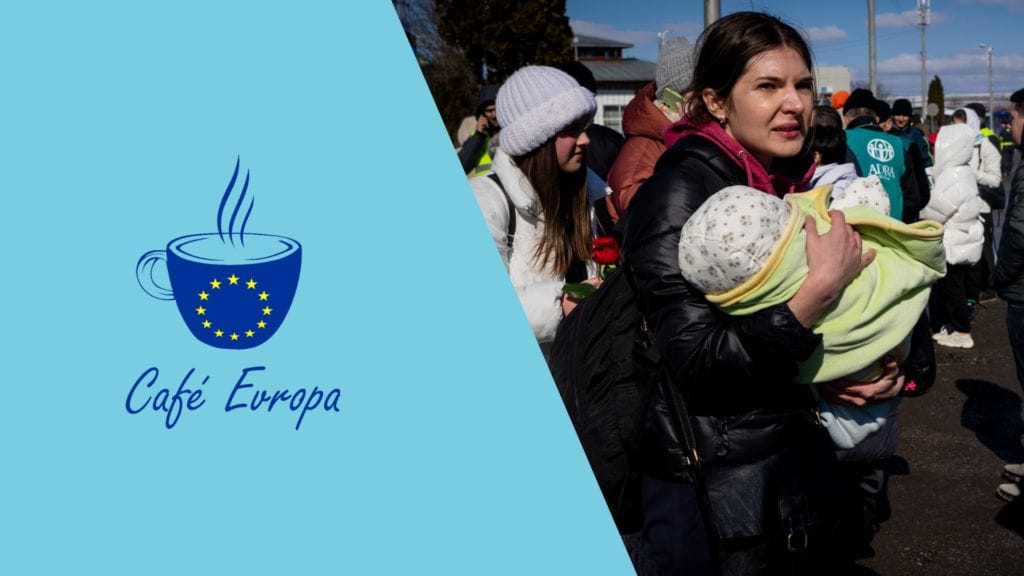
INVITATION: Café Evropa online: Ukrainian women with children fleeing war - how can we help?
More info 28. 3. 2022
28. 3. 2022
We invite you to a debate within the Café Evropa series, this time on the topic "Ukrainian women with children fleeing war - how can we help?". The debate will take place on 28 March at 17:30. You will be able to follow the debate online on our Facebook page.
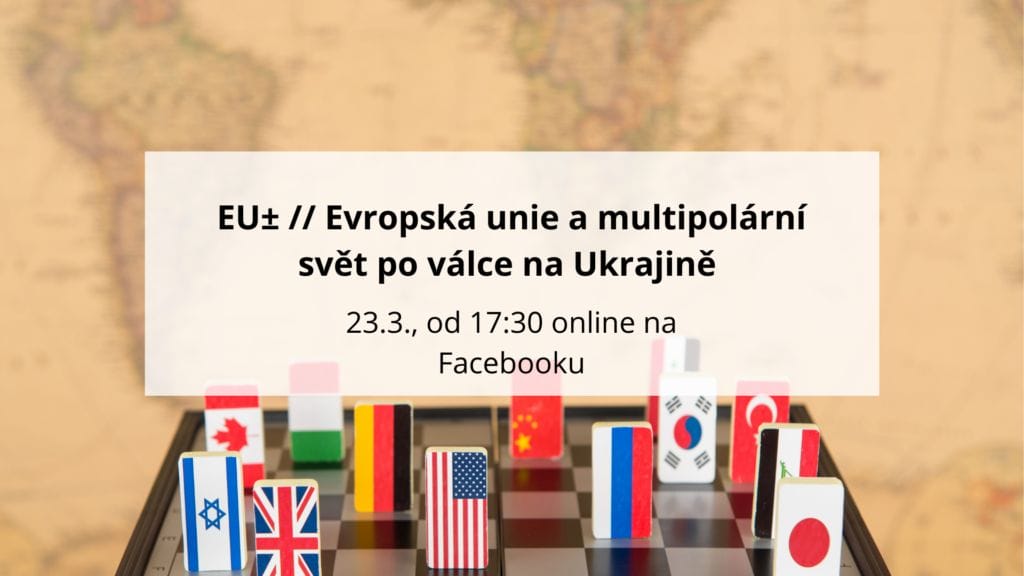
INVITATION: EU± // The European Union and the multipolar world after the war in Ukraine
More info 23. 3. 2022
23. 3. 2022
We invite you to the next debate in the EU± series, this time on what position the EU will and should take in the emerging multipolar geopolitical order. The debate will take place online via Facebook on Wednesday March 23 at 17:30.
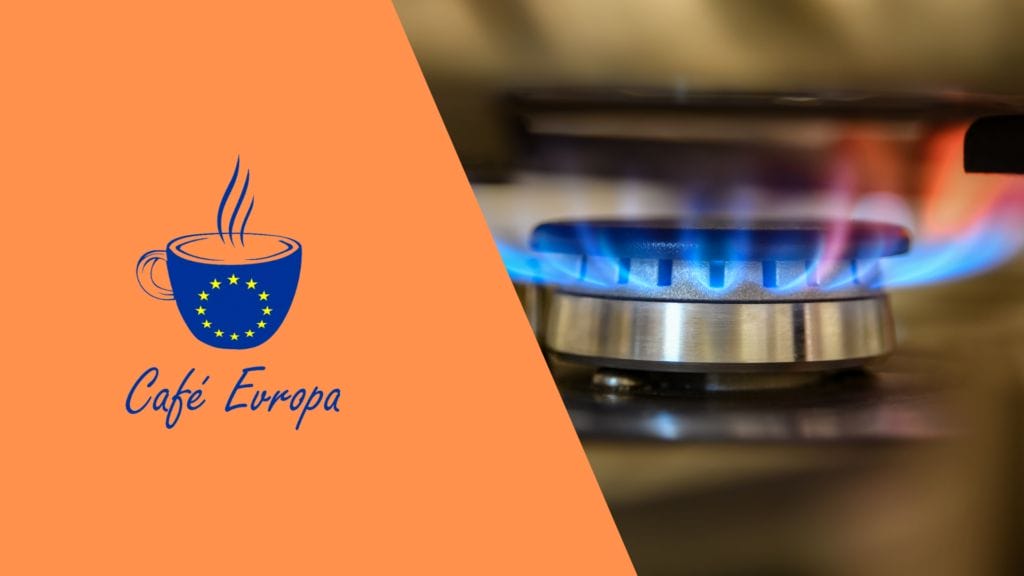
INVITATION: Café Evropa online: The future of European energy - how to ensure stable and clean energy sources without Russia?
More info 21. 3. 2022
21. 3. 2022
We would like to invite you to the Café Evropa debate on 21 March at 17:30 on the topic "The future of European energy - how to ensure stable and clean energy sources without Russia?".
The Russian invasion of Ukraine has, among other things, further fuelled the question of energy security in the Czech Republic and the EU and the future of energy in our country. The current security situation points to the need to diversify energy sources as soon as possible, i.e. to secure energy supplies from different regions and countries in order to avoid excessive dependence on Russia. There are also views in the public debate that coal extraction could be temporarily increased, which would enable some countries to cover any shortfalls in resources.
Is a complete or even partial halt of Russian gas supplies to the Czech Republic and the European Union a realistic option? What impact would this have on our energy security? How much further increase in energy prices can we expect in this case? How should EU countries react and help households and industry cope with the expected increase? Could a possible temporary increase in coal extraction mean a return to fossil fuels and the end of the EU's climate ambitions? Or could the current problematic situation further accelerate the energy transition?

National Convention on the EU: RECOMMENDATION: The territorial dimension of the internal market in global competition
More info 9. 3. 2022
9. 3. 2022
The latest National Convention on the EU took place on 25 February 2022. Here is a summary of the main points discussed at the Convention. The recommendations were prepared by Kristína Chlebáková, Zuzana Kasáková and Vít Havelka.